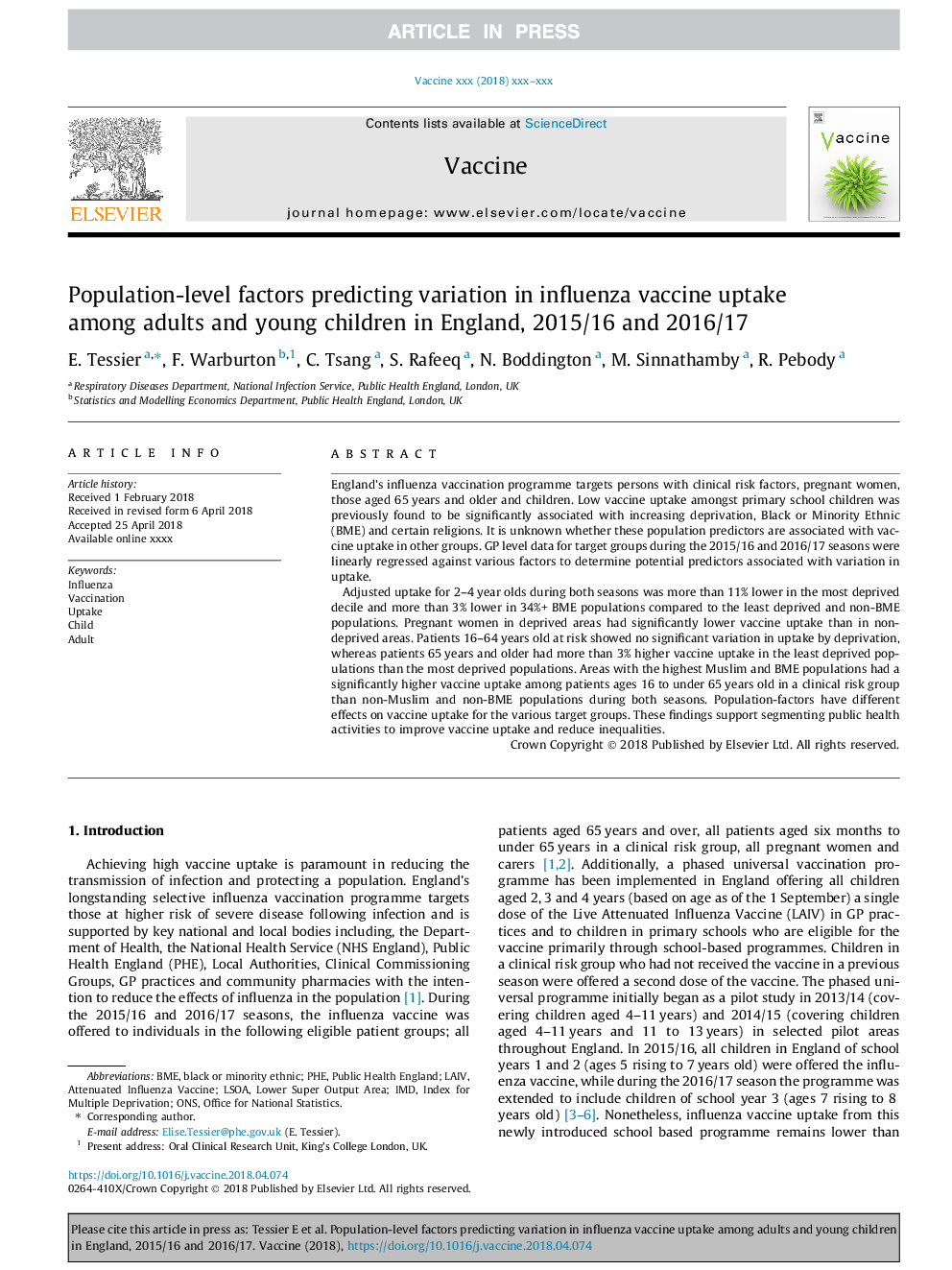| Article ID | Journal | Published Year | Pages | File Type |
|---|---|---|---|---|
| 8485641 | Vaccine | 2018 | 8 Pages |
Abstract
Adjusted uptake for 2-4â¯year olds during both seasons was more than 11% lower in the most deprived decile and more than 3% lower in 34%+ BME populations compared to the least deprived and non-BME populations. Pregnant women in deprived areas had significantly lower vaccine uptake than in non-deprived areas. Patients 16-64â¯years old at risk showed no significant variation in uptake by deprivation, whereas patients 65â¯years and older had more than 3% higher vaccine uptake in the least deprived populations than the most deprived populations. Areas with the highest Muslim and BME populations had a significantly higher vaccine uptake among patients ages 16 to under 65â¯years old in a clinical risk group than non-Muslim and non-BME populations during both seasons. Population-factors have different effects on vaccine uptake for the various target groups. These findings support segmenting public health activities to improve vaccine uptake and reduce inequalities.
Keywords
Related Topics
Life Sciences
Immunology and Microbiology
Immunology
Authors
E. Tessier, F. Warburton, C. Tsang, S. Rafeeq, N. Boddington, M. Sinnathamby, R. Pebody,
